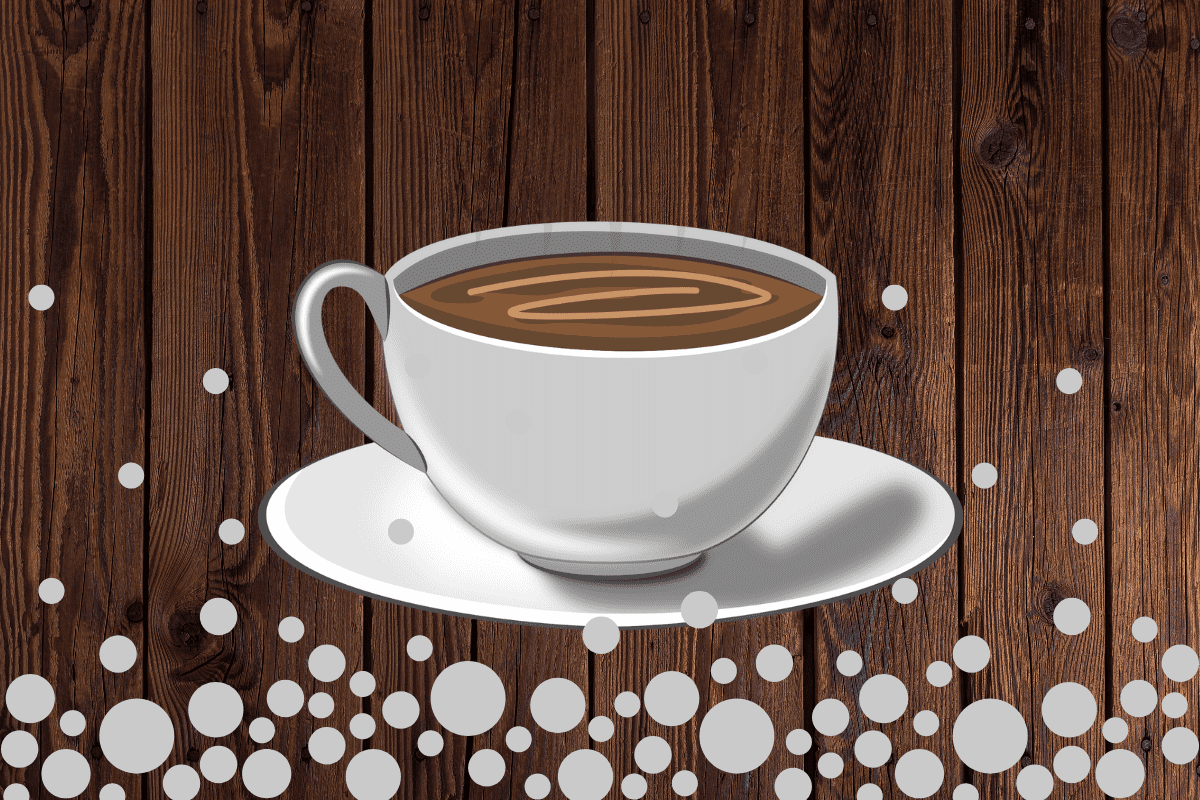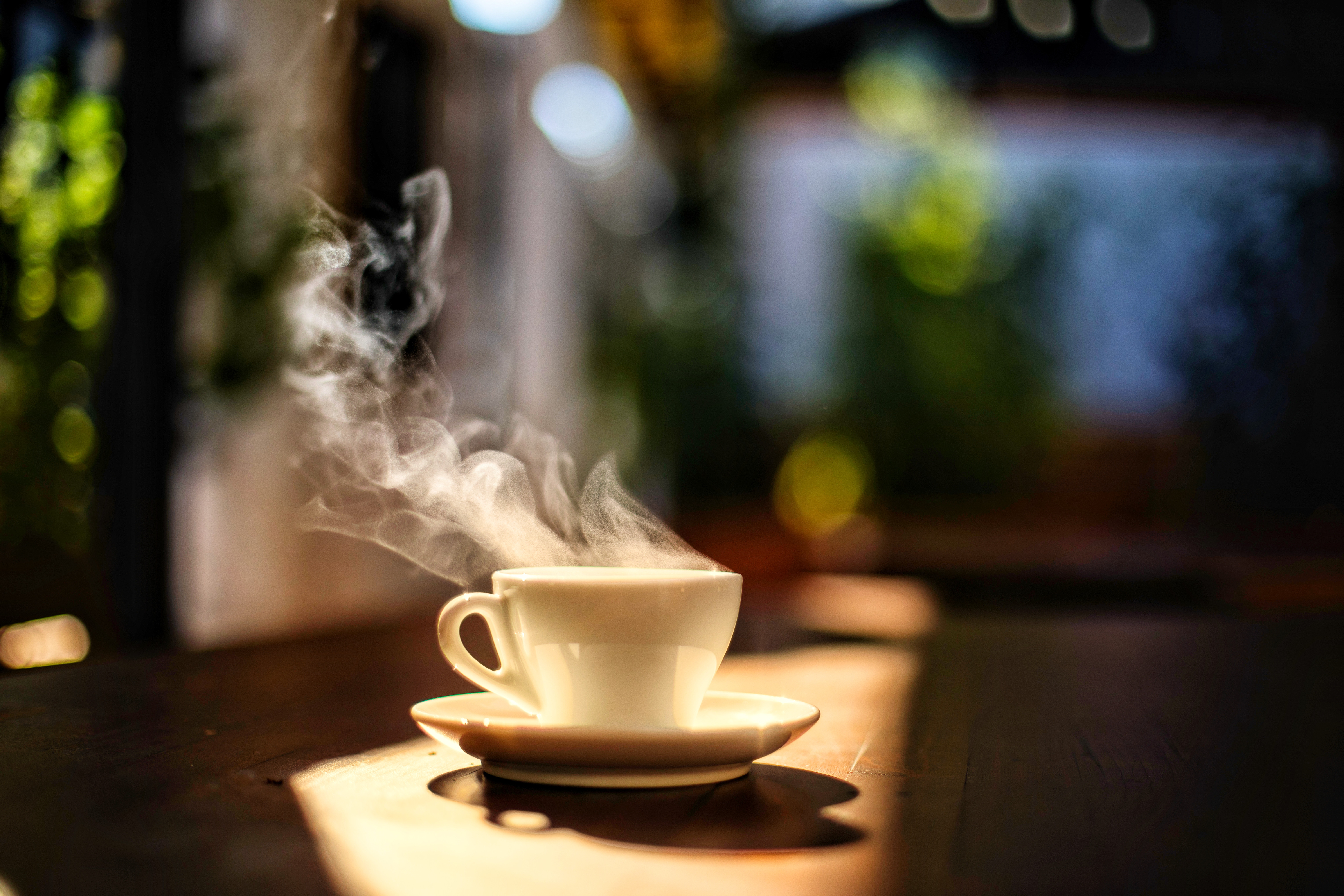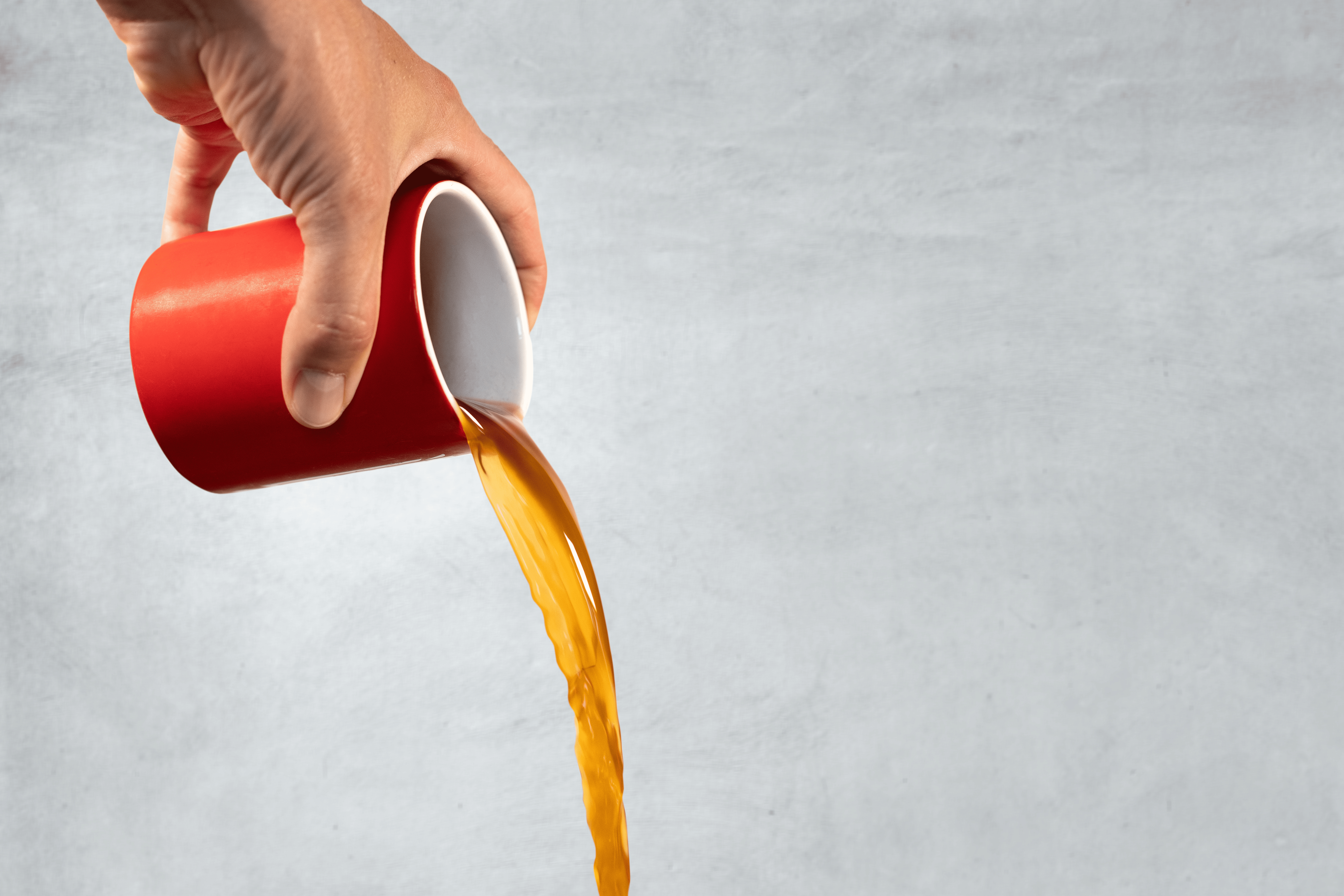Early morning wakeups call for a piping hot cup of coffee. But if you’re reading this, you are most likely experiencing the unpleasant dilemma of your coffee tasting like soap. A great-tasting cup of coffee will have a balance of different flavors and qualities that complement one another, but soapy certainly isn’t one of them.
So, why are you tasting a soapy flavor?
Soapy-tasting coffee can be the result of a few things.
- Your brewing device or mug wasn’t rinsed out sufficiently.
- Coffee is under-extracted.
- Poorly roasted coffee beans.
- Water is of poor quality.
- Coffee beans are old and stale.
Let’s dig a little deeper into the five culprits of why your coffee may taste soapy.
Your Brewing Device or Mug Wasn’t Rinsed Out Sufficiently
This first cause is fairly elementary and easy to fix. Soapy coffee can be the result of residual soap may have been left on the mug or brewing device from a recent cleaning. If this is the case, then your problem is solved. Simply give your items an extra rinse with warm water, and start your coffee over.
Other ways to clean your mug, carafe, or coffee maker include white vinegar, lemon juice, and baking soda. Again, you want to make sure to rinse completely to avoid a bad taste in your cup of coffee.
Coffee is Under-Extracted
If you tried rinsing the mug and brewing device and still your coffee tasted like soap, the problem could be with the extraction process.
Extraction is the process of pulling the flavor out of the coffee bean through hot water. When water is combined with coffee grounds, a chemical reaction dissolves the flavor compounds. It’s important to learn exactly how long your coffee grounds need to be extracted.
If you over-extract your coffee, the result in a bitter, burnt, or metallic taste. If your coffee is under-extracted, the result can be sour-tasting coffee, while some describe the taste as soapy. Either way, you can see why extracting properly is so essential.
Under-extraction refers to the amount of solubles in your ground coffee that ends up in your cup. There are MANY compounds (with various flavors) in each coffee bean that are extracted at different times in the brewing process. Certain flavors will be released early in the extraction process, and others will be released later.
Thus, if your coffee is under-extracted, certain compounds or flavors do not have enough time to be released, producing a cup of coffee that tastes soapy. To solve this issue, ensure that the water going through the coffee grounds takes longer, so the extraction time is lengthened.
A final tip to help with preventing under-extraction is to grind your coffee beans to the appropriate size for the brewing device of your choice. Below you’ll find a table showing how fine your grind should be depending on what you use.
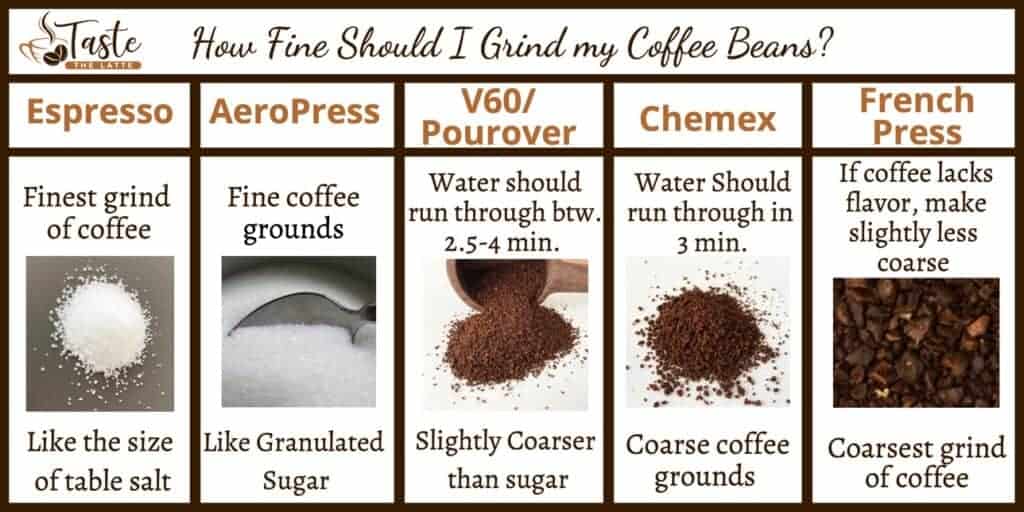
For more information, check out our other article, “How Fine Should I Grind my Coffee Beans?”
Poorly Roasted Coffee Beans
Our next possible culprit of soapy tasting coffee deals with how the beans were roasted. During the roasting process is when we get all the amazing aromatic coffee flavors from the original green coffee beans.
Coffee roasting is part art and part science and can take years to master, which is why there are professionals called Master Roasters. A Master Roaster is a highly experienced coffee professional responsible for taking green coffee beans grown in various places and seasons and implementing roasting techniques to produce specific roast and flavor profiles.
Try forgoing store-bought coffee and go directly to a coffee roaster. By doing so, you’ll be purchasing fresher high-quality beans that haven’t been sitting in a warehouse or store shelf for long periods.
Unfortunately, this isn’t something you can necessarily fix at the moment, except to purchase your beans from a quality roaster the next time.
Water is of Poor Quality
Water quality can greatly affect the taste of your cup of coffee. Since so much of a cup of coffee is comprised of water, the type of water you choose is integral. The first rule of thumb is if you wouldn’t drink the water you are using to brew your coffee with alone, don’t use it for your coffee.
The SCAA, Specialty Coffee Association of America, judges, and rates water quality on nine components.
- Color
- Freshness and Cleanliness
- Odor
- Sodium Content
- Total Alkalinity
- Calcium Hardness
- Total Dissolved Solids
- Total Chlorine
- PH Levels
The best type of water to use in your coffeemaker has some minerals but not too many. The water should be neither too acidic nor basic and never have chlorine. The quality should be clear, colorless, and odor-free.
I recommend forgoing tap water and purchasing a quality water purification device for all your water drinking needs. I use the APEC Water Systems ROES in my home for the family. It’s installed under my kitchen sink and is used for all drinking purposes, including brewing coffee.
By using quality water when brewing coffee, you can enjoy flavorful coffee every time.
Click the link for more details on what type of water you should use in your coffeemaker.
Coffee Beans are Old and Stale
The last possible cause of soapy tasting coffee is rarer than the others discussed today. Still, I have heard people complaining that their coffee tastes like soap when they are actually experiencing old or stale coffee.
Stale coffee is the result of oxidation. This chemical reaction changes the coffee beans’ compounds due to exposure to oxygen. Heat and sunlight can increase the rate at which this occurs. As coffee oxidizes, the flavor is affected negatively and tastes stale or soapy.
Below are some tips on how to prevent stale coffee.
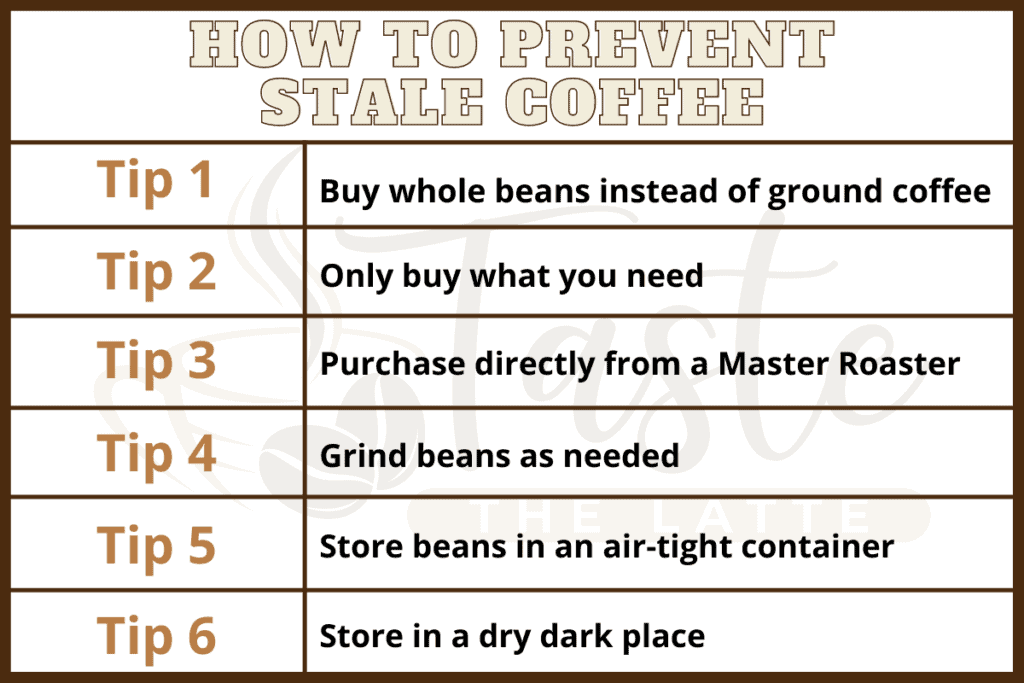
One of the most important things you can do to prevent your coffee from going stale faster is to only grind what you need. Whole coffee beans grow stale slower than ground coffee. This is because there is more surface area of ground coffee, which allows for more oxygen exposure.
Check out our other article, “What to do if Your Coffee Tastes Stale,” for more details.
Storing your coffee beans in canisters explicitly designed for coffee are great. Below are some of the ones I have used and recommend.
Final Thoughts
Several different things can cause soaping-tasting coffee. First, ensure all your items are thoroughly rinsed out. If that doesn’t solve the issue, adjust your brew time to get the correct extraction needed for the coffee beans.
If the first two possible solutions fail, check the quality of your beans and water, and be sure to store them in a tightly sealed container.
Hopefully, you can now be on your way to a flavorful and well-balanced cup of coffee.
What is the Ideal Temperature for Coffee?
When attempting to create the perfect cup of coffee, many factors come into play: coffee beans, grind size, brew method, and coffee-to-water ratio, to name a few. Another detail to…
How To Know If My Coffee Maker Has Mold?
Most people love waking up to the smell and taste of a hot cup of coffee. It not only gives our bodies a wake-up boost from the caffeine but also…
